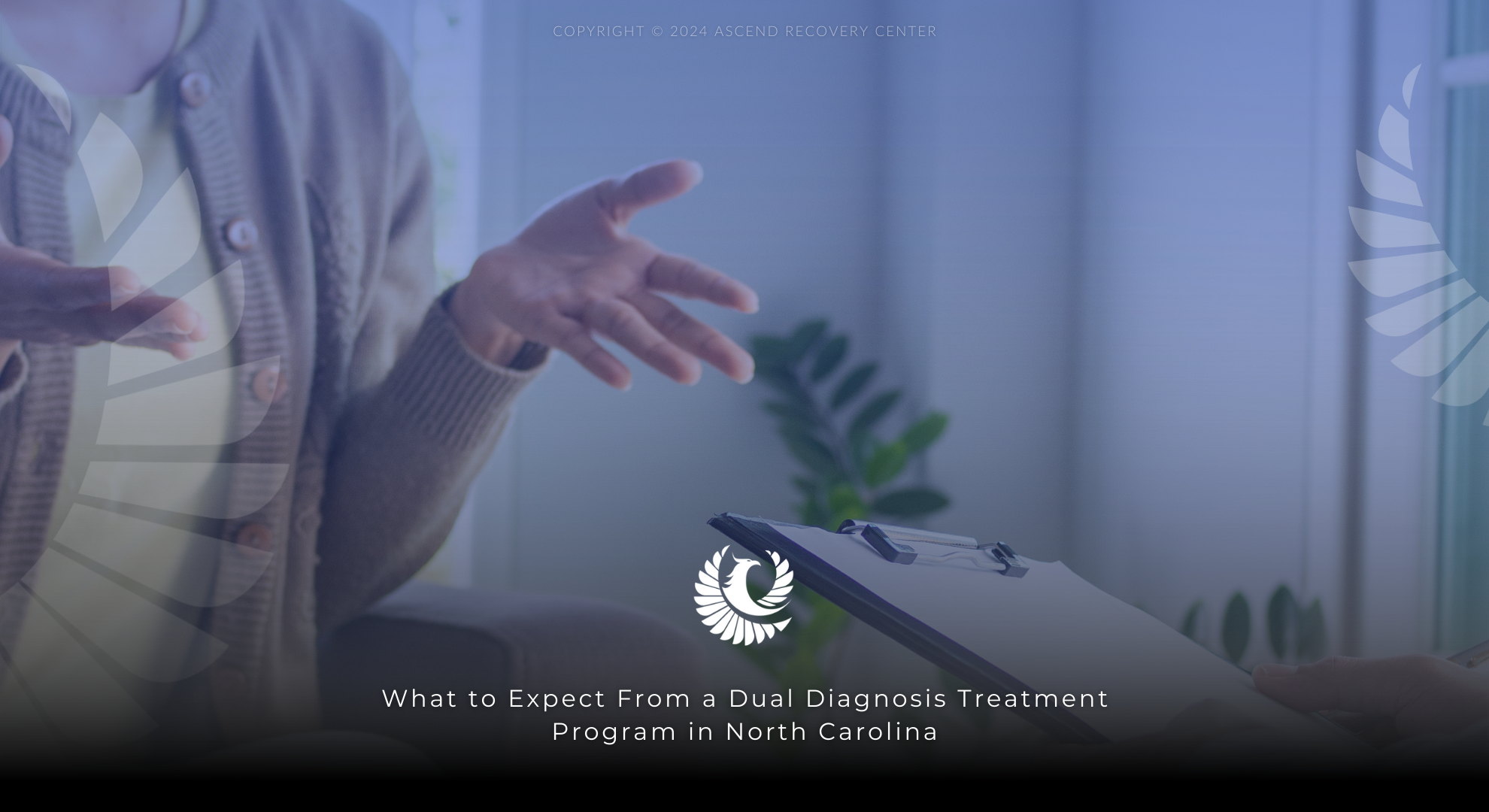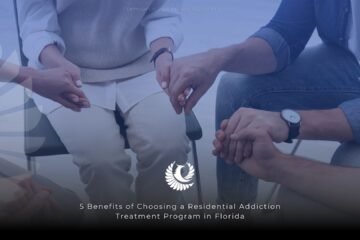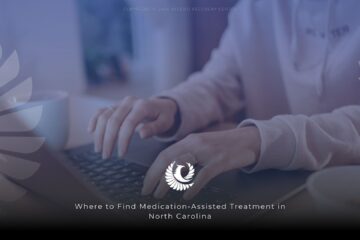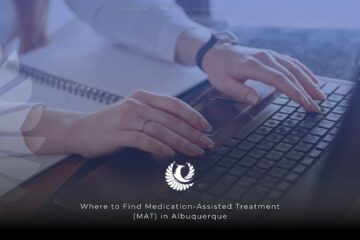Addiction and mental health conditions often go hand in hand. Many people who develop a substance use disorder begin abusing drugs or alcohol to self-medicate their mental health symptoms. As a result, they end up with co-occurring disorders or two mental health conditions at the same time.
According to the Substance Abuse and Mental Health Services Administration (SAMHSA), 21.5 million adults suffered from co-occurring disorders in 2022.
Having an addiction and co-occurring mental health disorders means you will need to receive comprehensive treatment for both conditions. Dual-diagnosis treatment centers combine addiction and mental health services to help their clients recover. At Ascend Recovery Center, we understand the importance of integrating substance abuse and mental health treatment.
Dual diagnosis rehabs in North Carolina offer an in-depth substance abuse and mental health assessment. From there, they will create an individualized treatment plan that includes behavioral therapy, holistic treatments, and medication management.
Whether you have a co-occurring anxiety disorder, bipolar disorder, or post-traumatic stress disorder (PTSD), Ascend Recovery Center can help you regain control over your life.
Signs You Need Dual Diagnosis Treatment
It can be difficult to determine if you need dual diagnosis treatment. After all, alcohol and drug addiction can mimic the symptoms of mental health issues. As a result, it’s important to be aware of the signs of co-occurring mental health and substance abuse.
The signs that you need dual diagnosis treatment include:
- Using drugs or alcohol to cope with your emotions
- Having a hard time controlling how much of a substance you use
- Experiencing urges or cravings to abuse drugs or alcohol
- Self-medicating your symptoms with substances
- Isolating yourself from friends and family members
- Experiencing mood swings that are difficult to manage
- Dealing with periods of depression, loneliness, and feelings of worthlessness
- Having thoughts of suicide or self-harm
- Believing you cannot live or function correctly without drugs or alcohol
- Having to increase the dose of a substance to experience the desired effect
- Struggling with withdrawal symptoms when you stop using drugs or alcohol
- Experiencing hallucinations, delusions, paranoia, or detachment from reality
If you experience a combination of substance use disorder and mental health symptoms, it’s time to seek dual diagnosis treatment. Leaving your mental health condition untreated will only lead to an addiction relapse in the future, and vice versa. This is why dual-diagnosis rehab centers in North Carolina integrate mental health treatment with addiction recovery services.
What to Expect at a Dual Diagnosis Treatment Program in North Carolina
If you have been considering attending a dual diagnosis rehab center, you might be wondering what to expect. These programs will ensure you recover from your co-occurring disorders simultaneously, reducing your risk of relapsing in the long term.
Substance Abuse & Psychiatric Assessment
The first step in treatment for dual diagnosis is in-depth assessments. An addiction expert will ask you questions about your substance abuse history to get a better understanding of what your addiction was like. A mental health professional will provide a psychiatric assessment to confirm your diagnosis.
These assessments will be used to craft an individualized treatment plan based on your needs.
Behavioral Therapy for Substance Abuse & Mental Health
Once your treatment plan is created, you will begin engaging in several different modalities of behavioral therapy. Behavioral therapy is effective in treating both addiction and a wide variety of mental health disorders.
Group therapy, individual counseling, and family therapy are all important types of therapy in a dual-diagnosis treatment program. Each type of therapy is beneficial for different reasons. For example, individual counseling is great for identifying and addressing the root causes of addiction, while family therapy helps you reconnect and gain support from your loved ones.
Holistic Therapy Approaches
In addition to evidence-based therapies, you will have the ability to receive holistic or alternative treatments. The word “holistic” refers to the “whole person.” This means these treatments will help you recover physically, emotionally, and spiritually.
Examples of holistic therapies used during dual diagnosis rehab include:
- Yoga and meditation
- Mindfulness and breathing techniques
- Acupuncture and massage
- Art and music therapy
- Exercise and nutritional counseling
- And more!
Medication Management
Lastly, you might receive medications to help treat your addiction or mental health condition. First, medication-assisted treatment (MAT) might be used to address opioid or alcohol use disorders. FDA-approved medications can prevent you from experiencing cravings or from relapsing.
Second, many mental health conditions require medications to balance chemicals in your brain that are responsible for therapy-resistant symptoms. Only non-habit-forming medications will be used to ensure they do not trigger your substance use disorder. For example, SSRIs might be used to treat anxiety or depression.
The Importance of Dual Diagnosis Rehab
When you have co-occurring mental illness and addiction, the symptoms of each condition can trigger the other. Unfortunately, this could cause someone to be trapped in a cycle of uncomfortable mental health symptoms and substance misuse.
Thankfully, dual diagnosis treatment helps you overcome mental illness and addiction at the same time. Doing so ensures that you will not experience a relapse because one condition was left unaddressed.
Dual diagnosis treatment helps you uncover the root causes of addiction, learn to avoid relapse triggers, and helps you to manage your mental health condition with ease.
Find Dual Diagnosis Treatment in North Carolina
If you or a loved one suffers from co-occurring disorders, you’ve come to the right place. Ascend Recovery Center offers a reputable dual diagnosis treatment that focuses on helping you become the best version of yourself.
Contact us today to learn more about our dual diagnosis treatment center in North Carolina.








